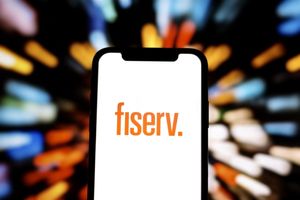Money Matters: A Comprehensive Guide to Managing Student Finances

Learning to take care of your finances is a skill developed with time. As a college student, you’ve probably taken a loan to pay for your studies already. And even if you got a full scholarship for your program, there are still tons of expenses to account for when starting college. And that involves not only study materials like textbooks but your groceries.
It’s your first try in adult life that involves caring for your expenses. You’ve probably got a side job to support yourself or have extra money. And with having the additional income you’re not always know how to manage your finances wisely. Thus, here is a comprehensive guide to always having a dollar in your bank account starting from college.
Calculate Your Income
First thing first, get a grip on your monthly income. It’s important to have a clear idea of how much you have each month. So, you can have an idea of how much you can spend on items that are not necessities. To do that, you have to calculate your expenses that cannot be avoided. That would involve food, rent, utility bills, and such.
Then, you have your study expenses. Think textbooks and assignments from a paper helper. And only after that, you can see the sum that you can spend on leisure and entertainment. This exercise is needed for you to understand how much spare income you have without using your credit card. Thus, you can proceed with setting your financial goals.
Budgeting is Your Best Friend
The main trick to keep your money in check is budgeting. That involves not only knowing how much you have but controlling all of your spending and savings. So, you can see where all of your money is going. Granted, it’s not easy to get a hold of all of your finances right away. Write down your expenses for a month.
Thus, you will understand how much you spend on everything. And see what can be cut down to increase your usual income. For instance, you can:
- Cut down takeaways. Make your own coffee or prepare your lunch by yourself.
- Slow down on going out. Maybe narrow it down to one time per month. And stay in for a movie night to relax instead.
- Use your credit cards only in emergency cases. Do not get yourself into unnecessary debt for retail therapy.

Savings Account
To ensure that you have some backup money, have a savings account. Think of it as a piggy bank for adults. You are not allowed to take any penny from it unless it’s a life-and-death situation. Do not expect yourself to save money with just one bank account. Set an automatic transfer of whatever sum possible to your savings account.
This way you will always have something saved every month. Be realistic about it. Do not try to save more than you can. Remember that your savings should not be more than 20% of your income to be manageable. The most important thing is to start the habit and the rest will come on its own.
Impulse Buy Prevention
The worst enemy of a student’s budget is impulse buying. It’s easy to get tempted by the latest trend or the next cute thing in your favorite shop. Especially when that thing is inexpensive. But it’s a trap that gets you spending tons of money without even realizing it. So, you have to find the best ways to control possible impulse buying.
If it’s possible, try to plan out “fun money” ahead. Thus, you do not feel restricted but are in control of your expenses. At the same time, you have to be mindful of your purchases. Before you rush to buy something, ask yourself if you really need it and how much use you get from it.
Keep Your Eye on Discounts
As a student, you do not want to miss out on entertainment altogether. College is supposed to be fun as well as give you a heads up in your future life. But to avoid breaking the bank you have to be strategic about it. Discounts and free pass events are what you’d like to look for.
Keep track of seasonal discounts and ones that are offered to students. You can save on gym memberships or even traveling tickets with your student ID. Do not pass on the opportunity to save money. However, do not buy things just because they are on discount. That will only lead to impulse shopping you’d like to avoid.
Consider Additional Financial Education
Once you’ve got everything under control and mastered budgeting, think one step ahead for your financial goals. For example, you can be determined to get out of your student debt as soon as possible after graduation. Thus, you’ll need some advanced budgeting skills to organize your adult life and become debt-free.
To do so, consider taking some classes or visiting workshops that teach you how to achieve a specific financial goal. You can even try finding necessary information on YouTube or platforms like Skillshare. Be mindful here. Do not follow just any advice you found on the Internet. Do your research and apply for the best course to get those advanced skills.
Save on Traveling
Finally, do not blow your savings on a live-love-laugh adventure while in college. As tempting as it might be, you’ll regret it in the long run. Without a proper traveling plan and mindful approach, you’ll end up spending your hard-earned money in vain. Besides, there’re tons of affordable traveling plans for students nowadays.
All you have to do is search for them. For example, you can go for a short trip to Mexico during your winter or summer break. It’s not going to be far or terribly expensive. But it will be exciting and fun. Just don’t forget to budget the trip in your financial plans. You can have it all in college. You just need to be smart about it.
Wrapping Up
There you have it. To master your finances, calculate your pure income first. Then, you can get a hold of your budgeting habits to see your financial situation clearly. Work on saving money by getting a savings account, controlling impulse purchases, and always being on the lookout for a discount. Take up additional financial education to achieve serious money goals. And finally, do not blow your budget on traveling and look into many student-friendly options for trips instead.
Featured Image: Unsplash @ Alexander Mils
Read more investing news on PressReach.com.Subscribe to the PressReach RSS feeds:- Featured News RSS feed
- Investing News RSS feed
- Daily Press Releases RSS feed
- Trading Tips RSS feed
- Investing Videos RSS feed
Follow PressReach on Twitter
Follow PressReach on TikTok
Follow PressReach on Instagram
Subscribe to us on Youtube
More News
View More




Recent Quotes
View More
Quotes delayed at least 20 minutes.
By accessing this page, you agree to the Privacy Policy and Terms Of Service.